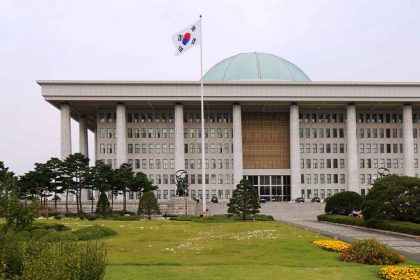South Korea will consider a possibility to open up the road to Initial Coin Offerings through easing the country’s legislation.
Though the authorities in South Korea announced their decision to ban ICOs in the country in September 2017, there haven’t been any laws enacted in this regard. But now Min Byung-Doo, South Korea’s National Policy Committee Chair, has announced a necessity to legalize ICOs and to provide an appropriate regulatory framework.
According to the Committee Chair, in the world where token sales have become a real global trend, the prohibition of ICOs seriously weakens the company’s competitiveness with foreign markets as it can prevent the growth of this industry. That’s why he doesn’t want South Korea to say “no” to ICOs and close the door to them. He said:
“[South Korea’s] blockchain-related industries were at the top of the world in terms of competitiveness, but the competitiveness in ICOs has dropped sharply. Now, 75% of projects in the industry belong to the United States only, which is the world’s top competitor.”
It is expected that Min Byung-doo, who is a Democratic Party lawmaker, will prepare a draft project for potential ICO legislation by the next round of the National Assembly. According to his words, the main idea that should be reflected in the new legislation is the country’s desire to enforce strict regulation for the negative parts of the industry while allowing ICOs. He explained:
“We are looking at ways to open up the road to ICO[s] while strictly prohibiting negative factors such as fraud, speculation and money laundering.”
As it was reported by the local media, Min Byung-doo had already revealed his stance to local authorities including the Financial Services Commission (FSC), explaining that “prohibition is not the only way” and calling on to legalize ICO operations in the country. It is also said that in general attitude of the local authorities towards ICOs has changed to a more positive one if compared with their attitude in the past.
We have already mentioned that the FCS announced its decision to prohibit all kinds of ICOs in the country a little bit more than a year ago. Such a decision was explained by the fact that it is necessary to conduct serious monitoring of all ICOs and to establish serious control over them.
Following the ban, there were several attempts to cancel it. For example, such talks took place in May, when the National Assembly committee discussed a possibility to expand the legal basis for crypto industry in the country. Then the country’s lawmakers touched this issue in August while considering setting up the country’s own “blockchain island.”
In general, this year the country has done a lot of work in the sphere of crypto legislation. For example, in June the FSC revealed its new anti-money-laundering and know-your-customer rules for crypto exchanges. In addition, a month later members of South Korea’s political parties took joint efforts to further promote the development of cryptocurrency regulatory framework.
next